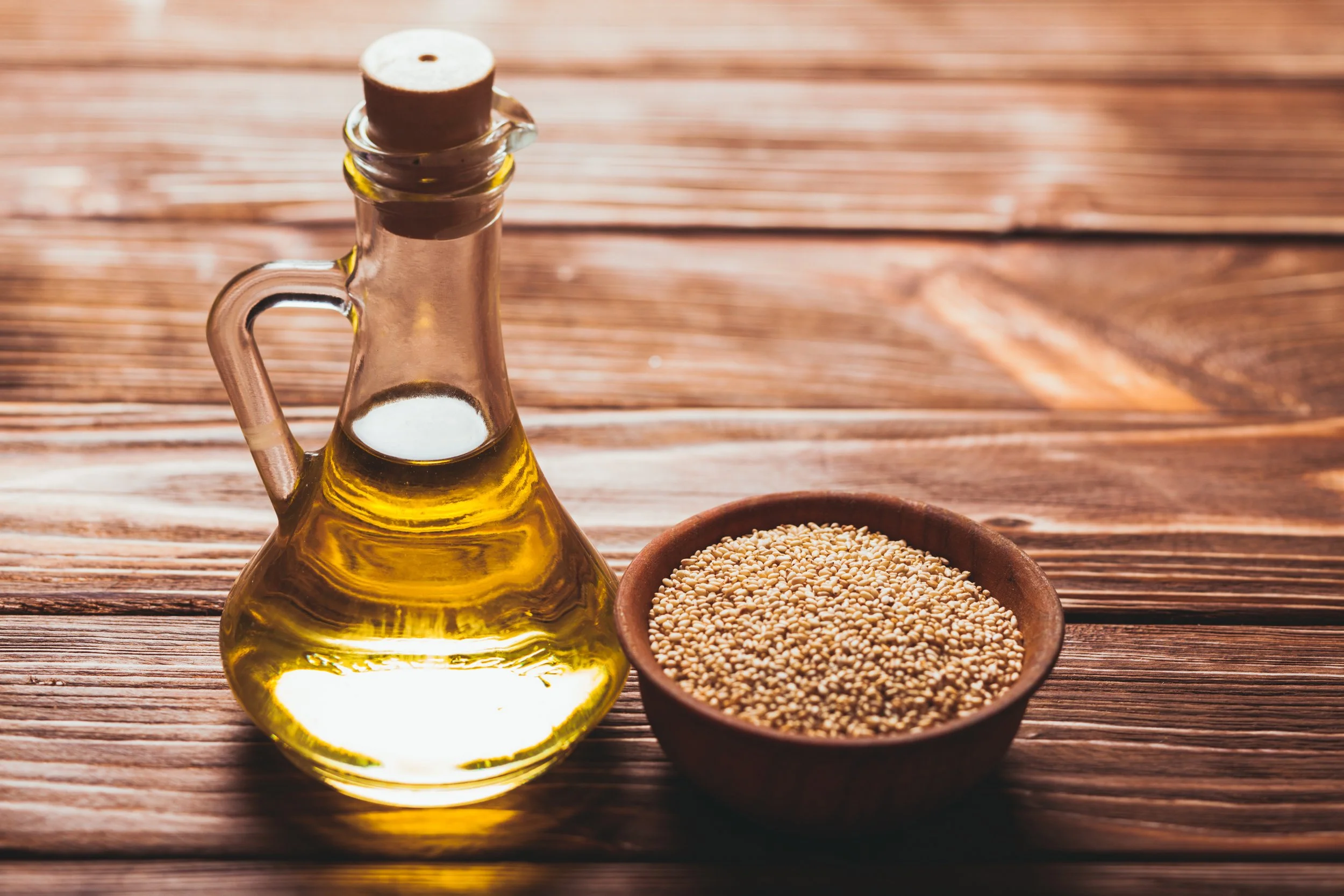Is Sesame Oil Gluten Free?
Sesame oil is a popular ingredient in many cuisines, particularly Asian dishes, and is known for its nutty flavor and versatility in cooking. But for those with gluten sensitivities or celiac disease, a common question arises: Is sesame oil gluten free? In this article, we'll explore whether sesame oil is naturally gluten-free, how it’s made, brands that offer certified gluten-free sesame oil, and ways to incorporate it into your gluten-free diet.
Is Sesame Oil Naturally Gluten Free?
Sesame oil is naturally gluten free. Sesame seeds, the source of sesame oil, do not contain gluten, which is a protein found in grains like wheat, barley, and rye. Therefore, pure sesame oil made from only sesame seeds should be safe for individuals with gluten intolerance or celiac disease.
However, while sesame oil in its pure form is gluten free, cross-contamination during processing or packaging can sometimes occur. This is why it's crucial to check labels carefully or opt for certified gluten-free brands, particularly if you have a severe gluten sensitivity.
How is Sesame Oil Made Gluten Free?
Making sesame oil involves pressing sesame seeds to extract the oil. Whether cold-pressed or toasted, the procedure itself doesn’t introduce gluten. As long as the facility doesn’t process gluten-containing products alongside sesame oil, the risk of gluten contamination remains low.
Some manufacturers may use shared equipment or packaging facilities where gluten-containing products are processed, potentially leading to cross-contact. For this reason, many companies that cater to gluten-free consumers undergo additional testing and certification to ensure their sesame oil meets strict gluten-free standards.
Are There Any Brands That Offer Certified Gluten-Free Sesame Oil?
Several brands offer sesame oil that is certified gluten-free. Here are some trusted brands:
Image courtesy of Spectrum Organic
1. Spectrum Organic: This brand offers a variety of oils, including sesame oil, and ensures its products are made in a gluten-free environment. They also carry organic options for health-conscious consumers.
Image courtesy of Kevala
2. Kevala: Known for its organic sesame oil, Kevala is another brand that takes extra care to avoid cross-contamination with gluten. Their oils are typically labeled gluten-free, making them a safe choice for individuals with gluten sensitivities.
Image courtesy of La Tourangelle
3. La Tourangelle: La Tourangelle produces artisan oils, including sesame oil, and has a selection that is certified gluten-free. Their high-quality oils are often favored by chefs for their flavor and purity.
Always look for a gluten-free label or certification on the bottle to ensure that the sesame oil you’re purchasing is safe for your dietary needs.
What Should You Look for on Sesame Oil Labels?
When purchasing sesame oil, it’s important to read labels carefully. Look for terms like "certified gluten-free" or "produced in a gluten-free facility." These labels provide extra assurance that the product has been tested and found free of gluten contamination. You can also look for allergy warnings or cross-contact statements, which may indicate if the oil was processed in a facility that handles wheat or other gluten-containing grains.
If the product is not labeled gluten-free but you still wish to try it, consider contacting the manufacturer directly for more information on their production practices.
Can Sesame Oil Be Used in Gluten-Free Cooking?
Sesame oil is a fantastic addition to a gluten-free diet due to its versatility. Here are several ways to incorporate it into your cooking:
1. Stir-Fries: Sesame oil adds depth and a rich, nutty flavor to stir-fries, which can be made gluten-free by using gluten-free soy sauce or tamari.
2. Dressings and Marinades: Use sesame oil in homemade dressings and marinades for salads, chicken, or tofu. It pairs well with vinegar, citrus, and gluten free honey for a gluten-free, flavorful boost.
3. Sauces: Many Asian-inspired sauces, such as tahini-based or peanut sauces, benefit from the addition of sesame oil. Just be sure that all other ingredients used in the recipe are gluten-free.
4. Finishing Oil: Drizzle toasted sesame oil over cooked vegetables, rice dishes, or even gluten-free pasta for an added layer of flavor.
Are There Any Potential Sources of Gluten in Sesame Oil?
Pure sesame oil should not contain gluten, but there are a few scenarios where gluten may find its way into the product. Here are some things to be mindful of:
1. Flavorings and Additives: Sometimes, flavored sesame oils, such as garlic or chili sesame oil, might contain gluten in the form of added seasonings. Always double-check the ingredients list to ensure no gluten-containing additives have been used.
2. Cross-Contamination: As mentioned earlier, cross-contact can happen during the manufacturing process if the facility also handles gluten-containing products. If you’re highly sensitive to gluten, it's best to choose sesame oil that is certified gluten-free.
How Does Sesame Oil Compare to Other Gluten-Free Oils?
Sesame oil is just one of many gluten-free oils available on the market, each with its unique flavor profile and uses. Here's how it stacks up against other gluten-free options:
Olive Oil: A staple in Mediterranean cuisine, olive oil is also gluten-free and offers a mild, buttery flavor. It's great for cooking at low temperatures and for dressings.
Avocado Oil: This oil is another gluten-free option, with a high smoke point that makes it suitable for frying and grilling.
Coconut Oil: Coconut oil is naturally gluten-free and has a subtle sweetness that works well in baked goods and tropical-inspired dishes.
Peanut Oil: Peanut oil is another gluten-free oil, commonly used for deep-frying due to its high smoke point.
Each of these oils offers a gluten-free option, but sesame oil's nutty, rich flavor makes it stand out in dishes that require a bold, distinctive taste.
What Are the Health Benefits of Sesame Oil?
In addition to being gluten-free, sesame oil comes with a range of health benefits:
1. Rich in Antioxidants: Sesame oil contains antioxidants such as sesamol and sesamin, which can help reduce inflammation and protect cells from oxidative stress.
2. Good Source of Healthy Fats: Like olive oil, sesame oil is high in unsaturated fats, which can support heart health when consumed in moderation.
3. May Support Skin Health: Some people use sesame oil topically for its moisturizing properties and potential to protect the skin from UV damage.
Adding sesame oil to your gluten-free diet not only enhances flavor but also provides potential health benefits.
How Can You Make Sure the Sesame Oil You Use is Gluten Free?
Ensuring the sesame oil you use is gluten-free starts with selecting reputable brands and checking for certification. If you're ever unsure, contact the manufacturer or opt for products that specifically state they are gluten-free.
While pure sesame oil is naturally gluten-free, those with severe sensitivities or celiac disease may want to stick to certified options to avoid the risk of cross-contamination.
Flavor Your Gluten Free Dishes With Sesame Oil
Sesame oil is a versatile and flavorful ingredient that can easily be part of a gluten-free diet. Whether you're using it to add depth to a stir-fry or drizzle it over roasted vegetables, sesame oil enhances your dishes while staying gluten-free—so long as you choose the right product. By opting for certified gluten-free brands and carefully reading labels, you can enjoy the health benefits and rich taste of sesame oil without worry.




